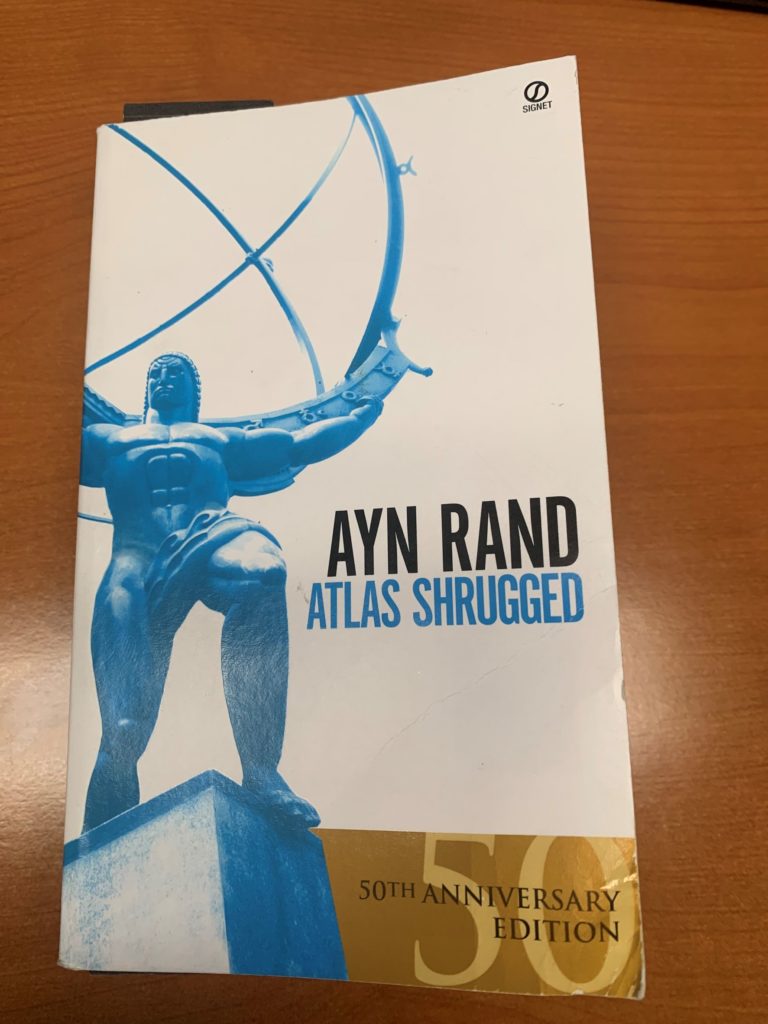This is the last chapter in part one of Atlas Shrugged. It is not quite numerically a third of the way through, but practically it is. Let us just say that the world is quickly losing it’s mind. By the end of the chapter, we see the beginning of the end.

As the story line goes, Dabny continues her search for the engineering brains behind the ‘perpetual motion machine’ or the motor that converts static electricity from the air into mechanical energy. Of course, the search is very difficult because the Twentieth Century Motor Company closed over ten years prior and anyone that is affiliated doesn’t want to talk about it.
Most of the chapter wanders around interviewing different characters who lament how their desire to make the world better ended in hard feelings and failed financial enterprises. We had the banker who loaned money without any credit check or collateral and lost everything. We had the owners who levelled the entire organization payroll structure to have the entire company vote on need based results and punitive for those who got less votes. The people involved with the enterprise for pure reasons like science left out of disgust. The people involved with the enterprise for social engineering failed miserably.
I guess where I want to go with this today is philosophy of the premise. What I mean is that making the world a better place is a laudable goal. But, logic must be applied to the methods. Ideologues that act without a solid premise are destined for failure and ridicule regardless of how equitable the changes might be.
Speaking of Ideologues, I would also say that perception of the surrounding world is skewed. If I believe that every person should be paid equally (or the same amount), then I am going to perceive anyone that runs a company against my beliefs as deficient. That may project as greedy or selfish or a workaholic or any number of adjectives negatively describing someone with opposing views as mine.
Additionally, in today’s fascist world I am going to use the means of the state to try and force my beliefs as policy or law. This leads us to a new dirty word, fair. If you are anything like me then then the connotation of the word fair is positive. As I do, I want to look deeper into the word.
I have thought about this quite a bit. Is fair a reality? What is fair and what does it really mean? On thinking deeper, something can only be fair when all parties agree. Just like in the book, losing your business to bad business practices is not un-fair it is your perception of the circumstances. I don’t think all would agree that it was un-fair, I sure don’t.
Other industrialist are doing a lot of whining about the fairness of Hank Reardon’s success and productivity. Subsequently, under the orders of Bureau of Economic Planning and National Resources railroads speeds are capped at sixty miles and hour and the maximum train length is limited to sixty cars and trains are required to operation the same number of trains in one state as adjacent states. In addition, no one metal company can produce quantities exceeding another. And finally, there is a 5% Value Added Tax to Colorado. This is all in attempt to have a fair marketplace.
End Your Programming Routine: The name of this chapter is Wyatt’s Torch. The reason being is that Ellis Wyatt, the oil baron and the reason the John Galt Line was built just gave an ‘F’-You to all the people demanding fairness. He set his facility on fire and gave up on drilling oil. Like the engineers, at some point you can’t fight these kind of battles head on. You have to regroup and take the fight in a different direction or front.
Recent Comments